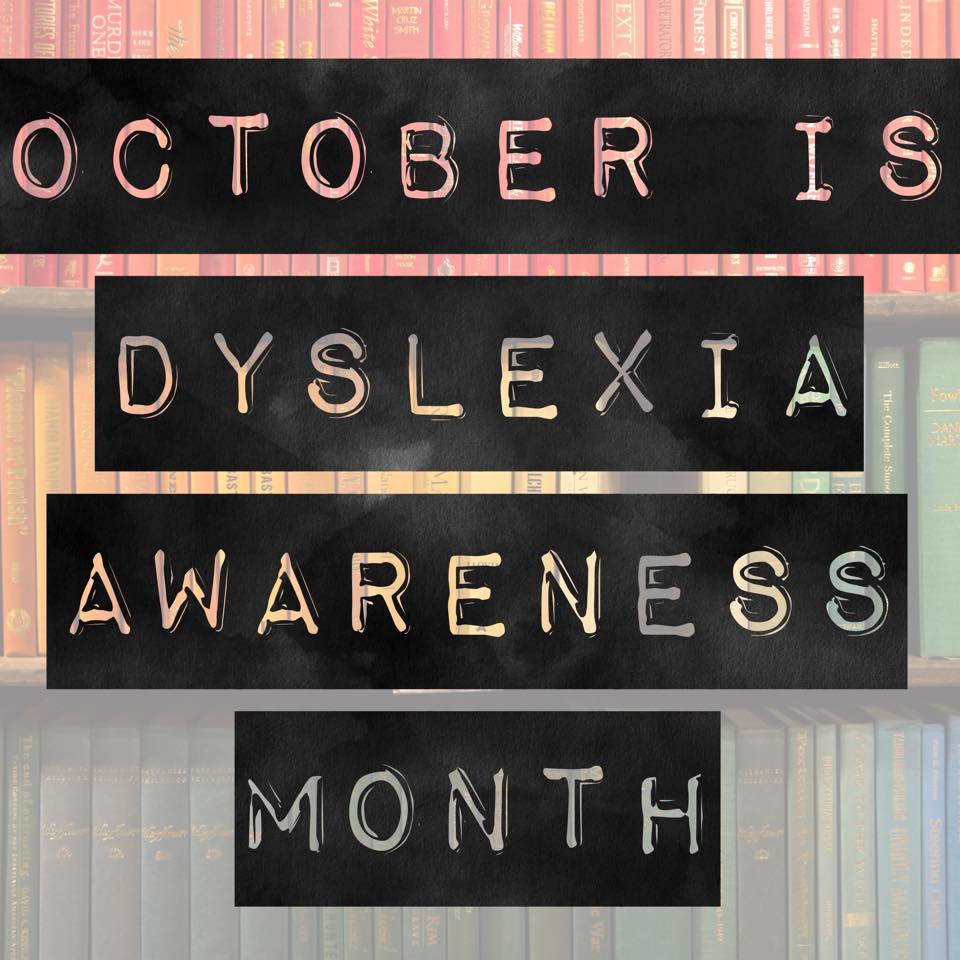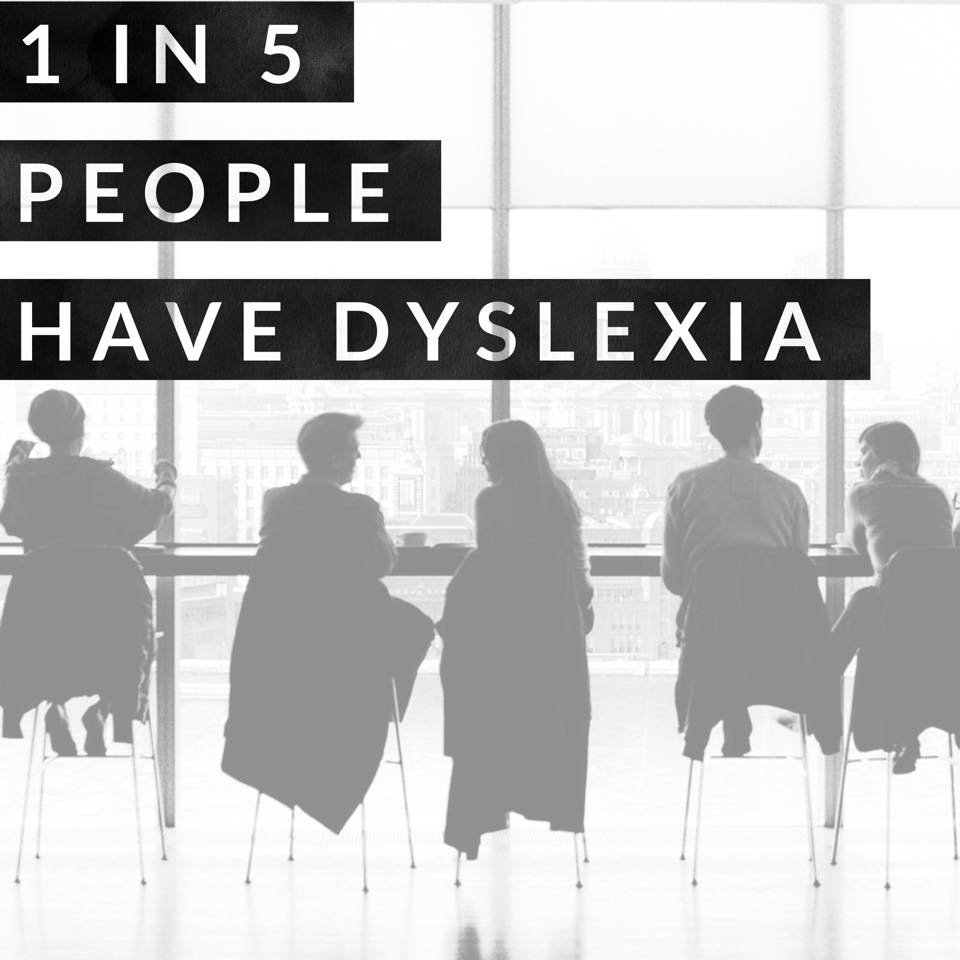Dyslexia Awareness Month: Tips from an Educator on Helping Students with Dyslexia Succeed
Today for Dyslexia Awareness Month we have an educator and parent to a child with dyslexia who talks with us about adapting assignments to help our students with dyslexia be more successful in school.

I first met AJ at the end of her first grade year. Her mother and I had been dating for nearly three months, and I began coming over once or twice a week after school. Being an educator, I quickly adopted the role of in-house tutor. At the time, AJ had a remarkable teacher who had moved up with her from kindergarten, a teacher who had personally arranged for her mother, a retired teacher, to work one-on-one with AJ when she noticed that AJ was falling behind on reading. It didn’t take long to see several indicators that AJ might have dyslexia, which I shared with her mother. She mentioned that she had also wondered about the possibility that AJ was dyslexic, and that AJ’s father was dyslexic.
ADVERTISEMENT
ADVERTISEMENT
Fast forward to fourth grade. I had been trying, and failing, to have AJ’s teachers recommend dyslexia testing for two years. Despite my efforts, and my own experience in education, I was categorically dismissed on the basis that AJ was at or close to the reading level of her peers. Of course, AJ’s second grade teacher was out on maternity leave for more than half the year and hardly worked with AJ on her reading comprehension; AJ’s third grade teacher was so fixated on AJ’s maturity and enthusiasm for learning that she could not recognize AJ’s struggles.

Finally, thankfully, AJ was assigned to Mrs. B’s fourth grade math class. Unlike previous teachers, Mrs. B had a dyslexic son. Though she was not AJ’s English teacher, she partnered with us to pursue testing, producing evidence of AJ’s struggles and advocating for services. After testing, the diagnostician determined that AJ was not only dyslexic, but that her dyslexia was an impediment to both reading and mathematics skills. We felt vindicated and relieved by the results, and legitimately believed that our daughter would finally get the support she needed to succeed in class.
We were wrong.
AJ’s fourth grade English teacher contacted us to celebrate her “tough-love” method, in which she effectively refused to help AJ because she believed that our daughter relied too heavily on assistance. Her fifth grade math teacher refused to tutor her because, to paraphrase the teacher, other students were doing worse than AJ was and she had to prioritize them ahead of state testing. A few weeks ago, we were forced to call a meeting with her sixth grade teachers, several of whom were again not providing the services afforded her. While the dyslexia specialist continuously acknowledged our suggestions as research-based and our frustrations as warranted, the teachers were dismissive.
Just a week later, AJ informed us that her English teacher had explicitly stated that she had a goal for AJ to leave dyslexia services and end her 504 plan by the end of the year. The teacher in question, Mrs. T, had not discussed this with us, and to date has yet to share with us that she is actively encouraging our daughter to remove a support system specifically put in place to ensure her success. Mrs. T believes that AJ simply needs to work harder and be more independent in order to succeed academically. In the meeting, she made a comment that we have heard often: AJ isn’t struggling in my class. She’s one of my hardest workers.
One of the most pervasive statements AJ’s teachers have made over the years is that AJ exhibits a work ethic that they wish all students had. And therein lies the problem. AJ does work hard, harder than any student I have encountered in my eleven years of teaching. Most nights, she spends three to four hours on homework. We review math problems together, go over presentations, move line by line through essays. Her teachers can’t see her tireless determination to understand. I can.
I can also see her frequent breakdowns. I see her crying when she is confused, see her anxiety rising until the slightest sounds are triggers. I see her asking to stay home when we go to the gym so that she can finish homework, begging not to go with us to the park or to get dinner. AJ is eleven years old and puts in nearly twelve hours of academic work per day. This is the definition of struggle.
Imagine a child who wants to succeed more than she wants to play with her siblings. More than she wants to swim at the gym. More than she wants to eat. Now imagine that she is being praised for this behavior, that she walks into classrooms with teachers who celebrate her diligence and encourage her not to use her resources. It’s heartbreaking.
When I heard that October is Dyslexia Awareness Month, I realized that, prior to AJ’s diagnosis, I had never had a conversation about dyslexia outside a school building. I have never heard of a support group for parents of children with dyslexia, and her doctors have never mentioned her dyslexia during appointments. More alarming is the relative dearth of literature aimed at parents of children with dyslexia.
How do parents know how to support school-aged children with dyslexia? Where do they get the language? When do they learn about encoding and decoding? How would they recognize the signs of and advocate screenings for dyslexia?
Without my training as an educator, I would be woefully inept at helping AJ with her homework. If, together, we spend hours completing assignments each night, if she succumbs to weekly panic attacks, where would we be without my pedagogical understanding?
To that end, I want to share a few of the strategies that I have urged AJ’s teachers to implement. Hopefully, they better equip parent advocates and encourage educators to reflect on best practices.
Minimize text in assignment descriptions and directions.
One of the things AJ and I spend the most time with is deciphering the tasks she is given and the requirements for those tasks. Use short sentences or bullet points to convey instructions, and explicitly state what is expected of students.
Be targeted and intentional with independent tasks.
Recently, AJ was assigned a series of presentations in her social studies class. The teacher assigned the task through seven text-heavy slides. Students were given a research topic, then directed to several websites where they were to locate information to answer predetermined questions. By the end of the instructions, I had counted no less than seven steps requiring AJ to encode and/or decode information. When I approached the teacher, she informed me that the most important part of the assignment was putting answers to the questions on to preformatted slides. It was unnecessary for AJ to spend an hour reading assignment directions, much less to read and filter large blocks of information on various websites to answer her questions. If the task is rooted in application, AJ would have been best able to demonstrate mastery if she had been presented with a bulleted or reduced list of pertinent details. Instead, she got stuck making inferences about what she was reading, a task that the teacher had not even intended to assess or reinforce.
ADVERTISEMENT
ADVERTISEMENT
When differentiating, zero in on the specific skill that you want students to master and center that skill. Look for ways to reduce encoding and decoding tasks that are not being tested so that students can give their full attention to mastering only those skills which you are assessing.
Chunk lengthy assignments into clearly defined, measurable segments.
As my daughter gets older, her school projects become more and more involved. Instead of presentations that take one class period to prepare, AJ is now being assigned projects which require as much as three-to-four weeks of work and numerous elements, from research to graphic organizers to media presentations. These projects likely overwhelm even the most naturally studious children, but they can wreak havoc for kids with dyslexia. What often helps AJ is when we go through a task together, breaking the task down into concrete steps on separate lines. This reduces the clutter sometimes created by paragraphs or blocks of text, and it organizes her thoughts. She also has a clear reference tool to which she can refer from day to day, serving both as a reminder of what she has done and an indicator of her progress toward completing the full assignment. The problem, of course, is that this process can take an entire evening on its own. Teachers can better support dyslexic students by doing this ahead of time, providing students with a clear and manageable trajectory from the outset.
Provide sparsely worded rubrics and/or checklists with assignments.
For students with dyslexia, nothing is more disheartening than pouring effort into an assignment only to learn that they have done it incorrectly. With AJ, the fear of failure is so strong that she often shuts down before even starting assignments. I have learned that much of her anxiety and confusion stems from her not understanding how she is going to be graded, and which aspects of an assignment are most important for her to focus on. She, like many students, is self-critical and a natural over-achiever. Rubrics not only guide her; they help rein her in when she is working far beyond the expectations of the assignment.
Don’t mistake hard work and/or extra work as understanding.
It may sound counter-intuitive, but routinely celebrating students for working harder than their peers, or for exceeding the expectations of an assignment, actually perpetuates a dangerous level of diligence. Students like my daughter seek recognition, and they will push themselves well past exhaustion in an effort to impress the teachers who frequently praise their work. As hard as it has been for me to learn, it’s not a good thing when my students put in additional hours for my class on a regular basis. Public school already dominates the lives of adolescents, making it difficult to pursue healthy and meaningful outlets, sometimes forcing students to choose between livelihood and academic success.
Meet Our Guest Blogger
Ronnie K. Stephens ( https://twitter.com/RonnieKStephens ) is a proud dad and lifetime educator. Novelist, essayist, and poet. Neurodivergent. Loudmouth advocate for human rights. ronniekstephens.com
Filed under: Dyslexia
About Karen Jensen, MLS
Karen Jensen has been a Teen Services Librarian for almost 30 years. She created TLT in 2011 and is the co-editor of The Whole Library Handbook: Teen Services with Heather Booth (ALA Editions, 2014).
ADVERTISEMENT
ADVERTISEMENT
SLJ Blog Network
One Star Review, Guess Who? (#202)
This Q&A is Going Exactly As Planned: A Talk with Tao Nyeu About Her Latest Book
More Geronimo Stilton Graphic Novels Coming from Papercutz | News
Parsing Religion in Public Schools
ADVERTISEMENT








Thank you for this, Ronnie! As a parent of two kids with dyslexia, I’ve seen how our school made some adjustments for them, but mostly just allowing for more time and not counting spelling mistakes. I love the ideas you’ve presented here!